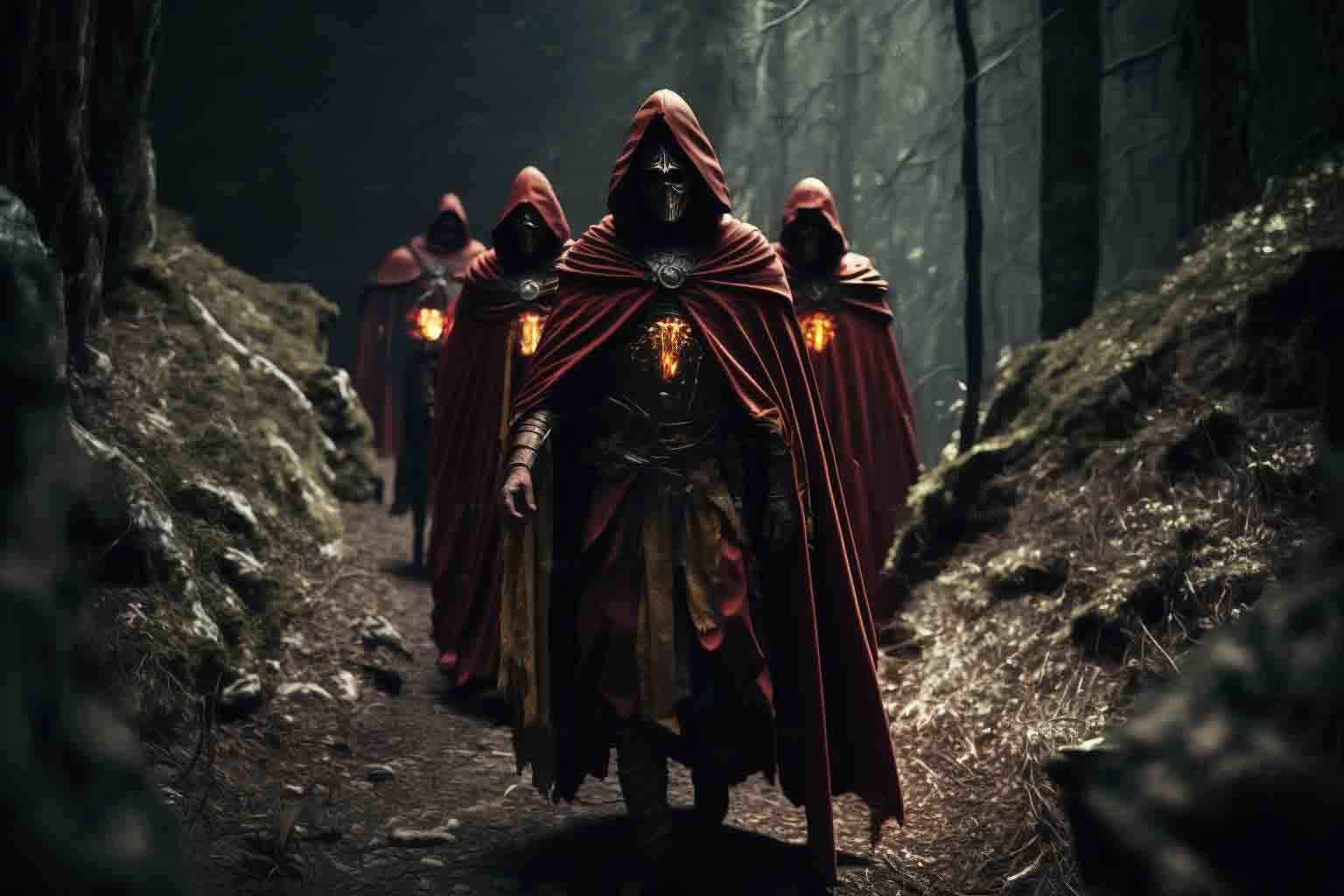The Berythian Tradition
For information on the Council's present heads, see Organizational Structure: Council of Landezon.
After Beryth's death, The Twenty – his original set of Disciples – were dispersed far and wide due to ongoing persecution. They carried his lessons with them where they went, and so began the Loraeic Tradition, named for the school Beryth founded and often called “Berythian” by those outside of it. It remains the dominant magical system to this day. Their writings - none of which exist in their original form - comprise the basis of individual Lineages, each traced to one of the Twenty Disciples:
Disciples: Holof, Thainkoor, Tinedon of Bai-Suud, Jureel, Wais, Gremel, Salaur, Posun, Rimithin, Feldos, Stonetree, Imirion, Ilkalyut, Qenithu, Parion, Merezaz, Rimor, Lolosid, Avanach, Chosol.
While the Twenty practiced magic across a number of Domains in Beryth's day, during a reformulation of the Berythian Order in 1101, each was slotted into one of four Columns depending on their elemental leaning. This assignation is detailed in the document, Carabod Sadhes (The Procession of the Elements). After this segmentation, the ability to prove descent from a teaching Lineage connected to one of these Masters took on critical importance. Each Lineage developed its own criteria for admittance, but, generally speaking, holds eligible any candidate that does not practice a Domain inherently opposed to Loraeic teachings. Each Lineage Master emphasized slightly different aspects of Beryth's teachings in their accounts, so descendants of one Lineage often have mild philosophical dissonance with those in others, but there exist very few truly irreconcilable points.
The core of Loraeic tradition is defined simply by:
A stress on the magician's ethical character, over other qualities;
A belief that magic, and thus, the Mage, is an integrated part of the world;
Following the above, the edict for Mages to abide by worldly laws, so long as they are just*;
A heightened responsibility of Masters towards their students;
The conviction that magic use should ultimately serve the common good;
Restriction of magical knowledge to the Initiated.
(*A term hotly debated! Beryth allowing himself to be executed by mundanes is the most famously contentious case.)
In their writings, the Twenty further extrapolated from Beryth's teachings that:
Mages should publish their work (though symbolically coded), in the interests of transparency and sharing with a larger community;
Any positions available within magical society should be merit-based, according to a Mage's body of work and reputation;
Arcane societies should be formed to govern the activity of Mages, ensure a high level of conduct from its members, and promote standards of excellence in research. The initial impracticality of a grand administration at the time meant such societies would naturally be local ones;
Connections with the mundane population surrounding such societies should be actively cultivated, both out of a duty to improve quality of life for these people, and also to safeguard the health and well-being of Mages from public disapproval.
The education of a Loraeic Mage is founded on:
The Magical Language of the Elements, as a jumping off point for all others;
The moral and metaphysical philosophy of Beryth, with modifications added by later commentators in specific Lineages.
Subsidiary Organizations










Comments